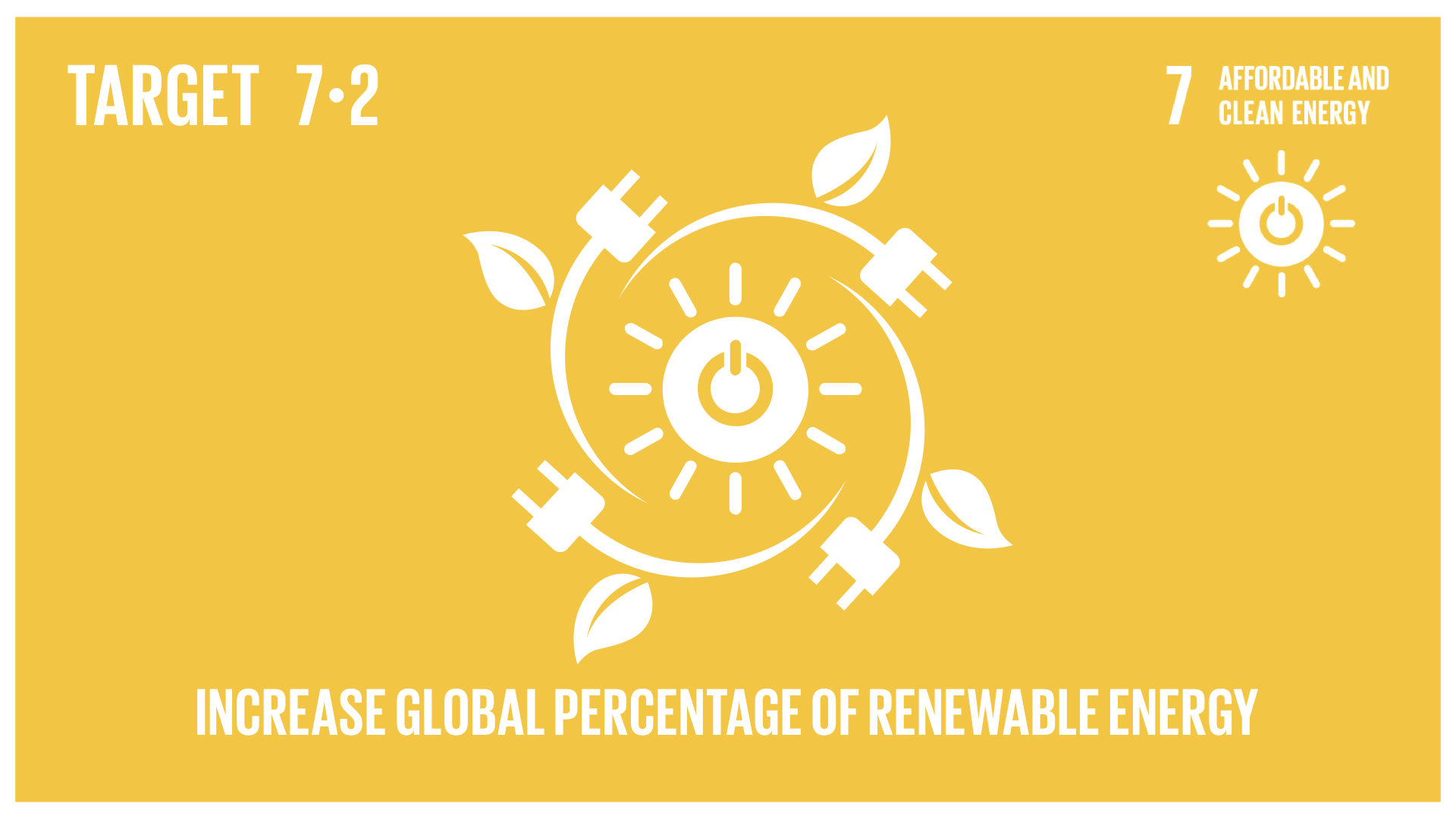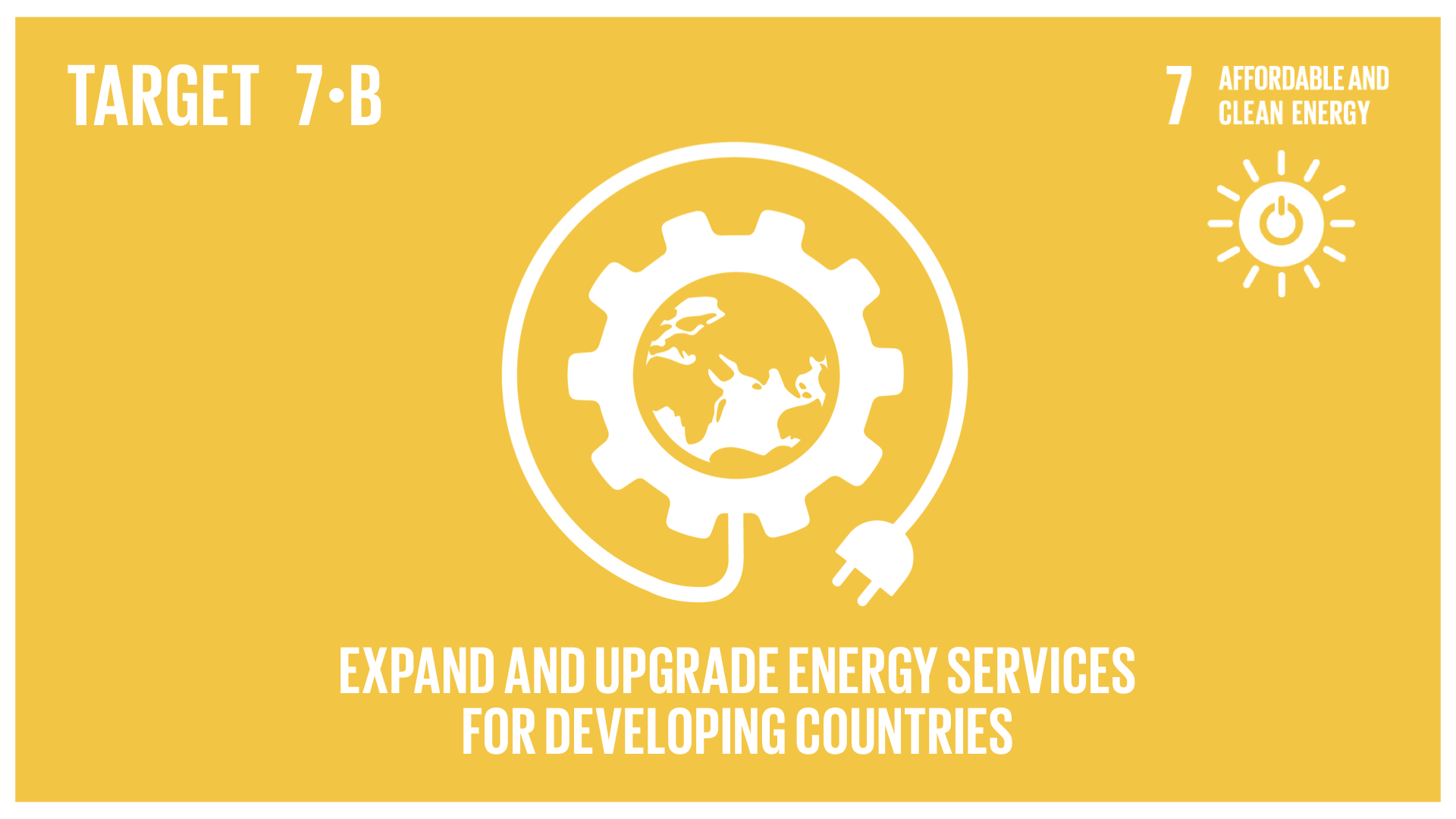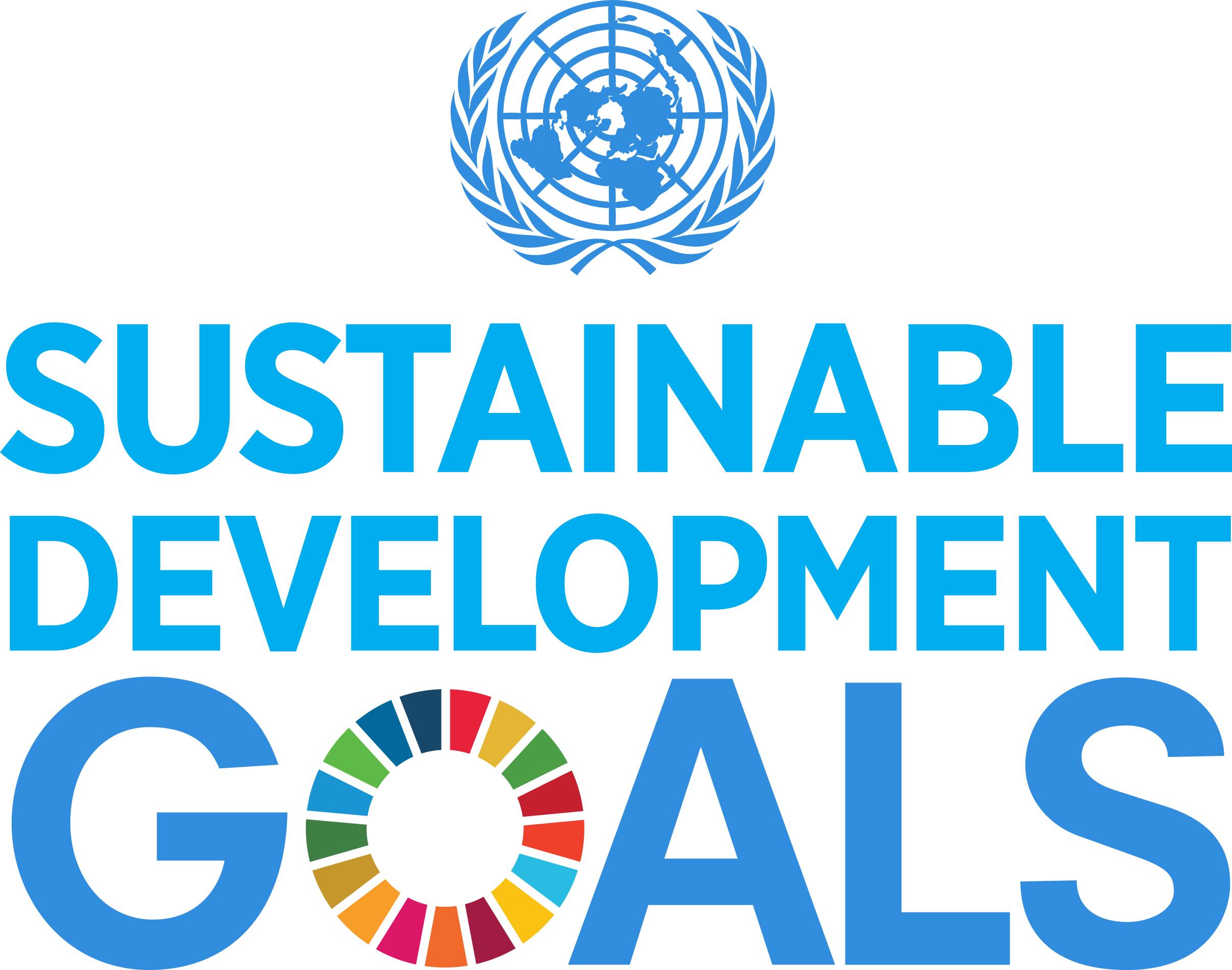SDG 7 - Affordable and clean energy

Ensure access to affordable, reliable, sustainable and modern energy for all
Energy is central to nearly every major challenge and opportunity the world faces today. Be it for jobs, security, climate change, food production or increasing incomes, access to energy for all is essential. Working towards this goal is especially important as it interlinks with other Sustainable Development Goals. Focusing on universal access to energy, increased energy efficiency and the increased use of renewable energy through new economic and job opportunities is crucial to creating more sustainable and inclusive communities and resilience to environmental issues like climate change.
At the current time, there are approximately 3 billion people who lack access to clean-cooking solutions and are exposed to dangerous levels of air pollution. Additionally, slightly less than 1 billion people are functioning without electricity and 50% of them are found in Sub-Saharan Africa alone. Fortunately, progress has been made in the past decade regarding the use of renewable electricity from water, solar and wind power and the ratio of energy used per unit of GDP is also declining.
However, the challenge is far from being solved and there needs to be more access to clean fuel and technology and more progress needs to be made regarding integrating renewable energy into end-use applications in buildings, transport and industry. Public and private investments in energy also need to be increased and there needs to be more focus on regulatory frameworks and innovative business models to transform the world’s energy systems.
Facts and Figures
- 13% of the global population still lacks access to modern electricity.
- 3 billion people rely on wood, coal, charcoal or animal waste for cooking and heating
- Energy is the dominant contributor to climate change, accounting for around 60 per cent of total global greenhouse gas emissions.
- Indoor air pollution from using combustible fuels for household energy caused 4.3 million deaths in 2012, with women and girls accounting for 6 out of every 10 of these.
- The share of renewable energy in final energy consumption has reached 17.5% in 2015.
Space-based Technologies for SDG 7
Still one in five people lack access to electricity and, as demand continues to rise, production of renewable energy needs to increase substantially. Satellite technology can help find the best locations for renewable energy infrastructure, outline the most fuel-efficient flight paths, support timing and synchronisation of energy fields and forecast production of wind and solar energy. Jointly with the European Global Navigation Satellite System Agency, UNOOSA produced a study on how global navigation satellite systems (GNSS) and Earth observation (EO) support the SDGs, including clean energy.
Related Content
Article
LIFE Calls for Proposals 2025: claim your share of €600 million and help create a sustainable future for Europe!
The EU LIFE Programme is launching the 2025 Call for Proposals, and once again we want to help you take your green ideas to the next level. As the #ForOurPlanet campaign gets under way, there’s never been a better time to turn your vision into action! If you’ve got an idea for conserving nature, protecting the environment, taking climate action or transitioning Europe to clean energy, your project could be in for a share of the €600 million just announced for 2025.
Capacity Building and Training Material
Event
Local Perspectives Case Studies
Project / Mission / Initiative / Community Portal
WMO Hydrological Observing System Portal
Currently, WHOS makes available three data portals allowing users to easily leverage common WHOS functionalities such as data discovery and data access, on the web by means of common web browsers. For more information on WHOS data and available tools, please refer to the Section WHOS web services and supported tools.
WHOS-Global Portal provides all hydrometeorological data shared through WHOS. WHOS-Global Portal is implemented using the Water Data Explorer application.
























